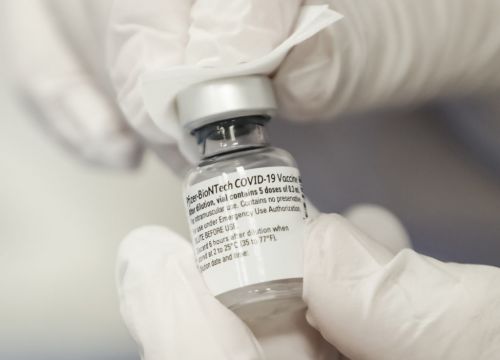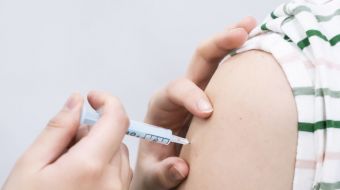European countries like Ireland have priced low-income countries out of the Covid-19 vaccine market, aid agency Goal has warned.
Dr Enida Friel, of the humanitarian response agency that was first established in Ireland, said the European Union and United States had essentially priced out the Covax campaign, created to ensure vaccine were made available around the world.
The World Health Organisation (WHO) is now calling for a halt to the rollout of vaccine boosters until at least the end of September in wealthy nations, as the majority of people in many low-income countries are yet to receive a single dose.
High-income countries administered around 50 doses for every 100 people in May, and that number has since doubled, according to the WHO. Low-income countries have only been able to administer 1.5 doses for every 100 people, due to lack of supply.
Dr Friel welcomed the call from the WHO to defer booster campaigns and instead contribute vaccines, to allow ten per cent of people in low-income countries to be vaccinated.
‘What the WHO is requesting is very modest’
Speaking on RTÉ radio’s Morning Ireland, Dr Friel said that Goal welcomed any initiative that would contribute to the health of the most vulnerable.
“What the WHO is requesting is very modest, they only want a small moratorium until September and to vaccinate at least ten per cent of the population of the low-income countries,” she said.
Dr Friel said that in theory rich countries could order their own supplies and support Covax, but that the reality was very different.
From a scientific point of view, evidence was still awaited that boosters would protect from severe disease and death.
“Right now the two doses are sufficient to provide that. There's some data that suggests the booster might provide further protection in particular for some groups — the immunocompromised etc.
“In theory we should do both [boosters and donate], but the reality is very different, Covax was this initiative set up with the leadership of the WHO, whereby all the vaccines produced in the world would be distributed equally across countries to protect us all.
“As Dr Ryan [Dr Mike Ryan of the WHO] says until we're all safe, nobody is safe,” she added.
Vaccine inequity and variants
Dr Friel pointed out that there was a huge disparity in terms of vaccine inequity. “For every 100 people, the African countries have only administered five doses, whereas in Europe, this figure is 88 doses per 100 people.”
Dr Friel said that although the EU and US had committed to Covax, they “went and made their orders for the vaccines and essentially priced out Covax and the low-income countries.”
“I think the reason why the WHO is calling for this is really to draw attention to the stark vaccine inequity that we have right now. Which does not serve anybody,” she added.
There are reports for example that of all the mRNA vaccines that will be produced this year, they've already been ordered by the US and Europe
“It is imperative we do this [moratorium on boosters], not only to protect the health and the livelihoods of the most vulnerable — let's not forget we also don't have the safety net that we have been able to put in Ireland in terms of supporting individuals, for the families, for the businesses.
“People have to go out to work, but also, if you stop infections, you are going to reduce the risk of variants emerging.”
Supply of vaccines was the major factor in low-income countries, she said. “There are reports for example that of all the mRNA vaccines that will be produced this year, they've already been ordered by the US and Europe, so where does that leave the low, middle-income countries even for them to be able to order them?”
The longer the delay in supplying vaccines to low-income countries, the greater the risk of vaccine hesitancy and misinformation, she warned.







